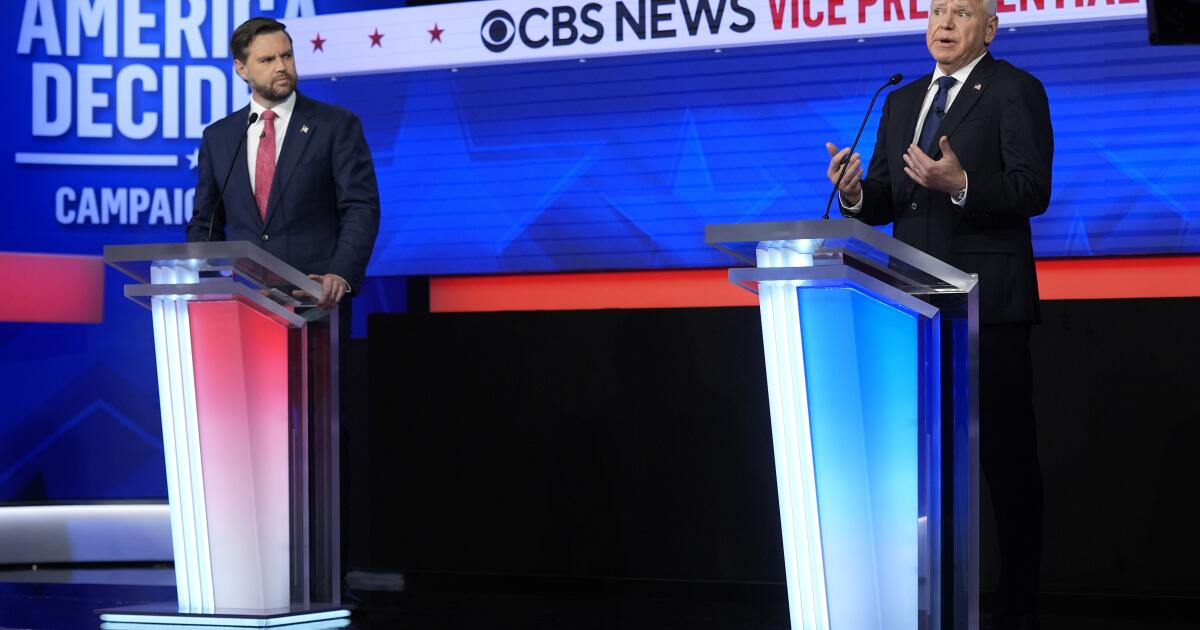NEW DELHI: After falling short of a majority in India’s election, Narendra Modi’s future is now in the hands of two notoriously unreliable allies.
Modi’s ruling Bharatiya Janata Party won 240 seats, short of the 272 needed for an outright parliamentary majority. He can still form a government if his National Democratic Alliance sticks together – but that is no sure thing.
Modi claimed victory for that coalition on Tuesday, calling it a “historical feat in India’s history,” and signalled that he intends to return as prime minister.
Two main allies in his coalition with a combined 28 seats – Telugu Desam Party in the southern state of Andhra Pradesh and the Janata Dal (United) in the eastern state of Bihar – are led by two veteran politicians who have often switched sides over the years. Both of them only re-joined Modi’s coalition in the months leading up to the 2024 election.
Here’s a closer look at some of the kingmakers who may determine Modi’s fate:
Nitish Kumar, leader of the Janata Dal (United)
Kumar joined the BJP-led alliance only a few months before polling began in April. Since 2010, he has changed political allegiances four times.
He’s governed Bihar, one of India’s poorest states, for almost 18 years by forming alliances that allow him to continue as the state’s chief minister. In 2022, he broke with the BJP and became one of the architects of the opposition alliance, before flipping back to Modi’s camp.
Kumar’s JD(U) won 12 of the 40 seats in Bihar in the election, capturing about 18.5% of the vote share in the state. A spokesman for the party said Tuesday it was standing with the NDA.
With Modi’s party falling short of a majority, social media was rife with Nitish Kumar memes. He met Modi at his residence Monday, the day before the votes were counted.
N. Chandrababu Naidu, leader of the Telugu Desam Party
Naidu is another leader who has switched sides on several occasions. A member of the BJP-led alliance, Naidu’s TDP pulled off a win in the simultaneously held assembly elections in the southern state of Andhra Pradesh. His party won 16 of the 25 seats the state sends to parliament.
In 2018, Naidu pulled out of the BJP alliance over a disagreement regarding the special category status of his state. One year later he lost the state election and won just 3 of the 25 seats in the national polls.
Last year, he was arrested over allegations that he misappropriated public funds but is expected to return as the state’s chief minister after his party won the assembly elections.
In a press conference Wednesday, Naidu confirmed he would support the BJP-led national coalition. “We are in NDA,” he told reporters before leaving to meet with the alliance members in New Delhi.
Some local newspapers reported that Modi, as well as Home Minister Amit Shah, spoke with Naidu over the phone on Tuesday.
Mamata Banerjee, leader of the All India Trinamool Congress
A long shot is India’s only female chief minister, who is part of the opposition I.N.D.I.A alliance.
A fierce Modi critic, Banerjee is unlikely to partner with the BJP. But unlikely alliances have been forged in India following other close elections, and she does have some history with Modi’s party: Some two decades ago, she served as a minister in a BJP-led federal government.
In a press conference Tuesday, Banerjee criticised Modi and the BJP for harassing her party workers and added, “I’m happy that Modi has not got single-largest majority, he has lost credibility and he should immediately resign as the prime minister.”
Banerjee’s relationship with the main opposition Congress party, which she quit to form her regional outfit, is also fraught with tensions. The ostensible partners are contesting against each other in several constituencies in the state. – Bloomberg
